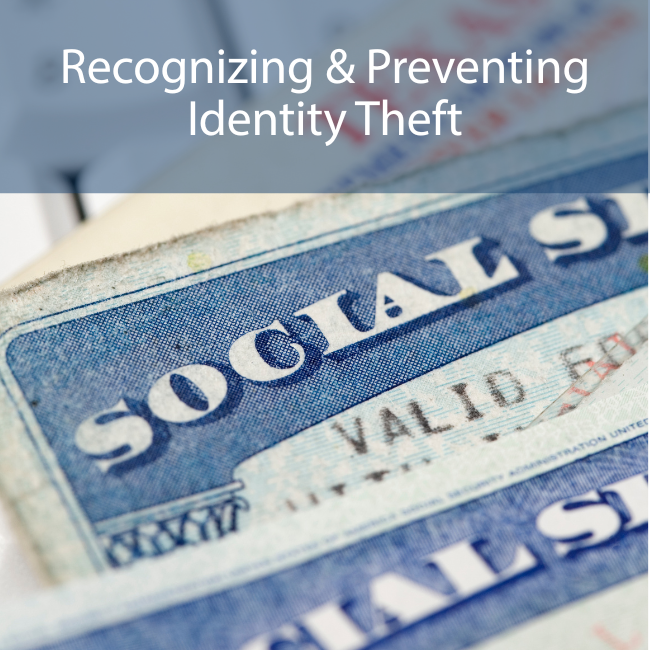The West Virginia Attorney General's Office is committed to protecting consumers from identity theft and helping victims recover. Identity theft affects thousands of West Virginians each year, but with proper knowledge and quick action, you can protect yourself and minimize damage if it occurs.

What is Identity Theft?
Identity theft happens when someone uses your personal identifiable or financial information without your permission. They might steal your name, address, Social Security number, credit or debit card numbers, or even medical insurance numbers.
How Identity Thieves Target West Virginians
"I thought I kept my personal information secure." Many West Virginians feel this way, but identity thieves use sophisticated methods to obtain your personal information. These criminals may:
- Access your information through data breaches at businesses where you have accounts
- Contact you by phone or email claiming to represent legitimate companies, medical offices, pharmacies, or government agencies
- Install skimmers at ATM machines or point of sale system to digitally steal information from your credit or bank card
- Obtain personal information from your phone when you use public Wi-Fi
- Search your social media accounts to find identifying information in posts or photos
- Steal your wallet or purse to get your ID and credit or bank cards
- Use "phishing" emails and fraudulent websites designed to steal your information
What Identity Thieves Do with Your Information
- Drain funds from your bank accounts
- File fraudulent tax returns to steal your refund
- Make unauthorized charges on your credit cards
- Obtain medical treatment using your health insurance
- Open new utility accounts in your name
- In extreme cases, provide your name to law enforcement during arrests
Warning Signs of Identity Theft
West Virginians should watch for these indicators that someone may have stolen their personal information:
- Debt collectors contacting you about debts you don't owe
- Health insurance claims being denied because records show you've reached benefit limits
- Health plan coverage being denied due to medical conditions you don't have
- IRS notifications about multiple tax returns filed in your name or income from unknown employers
- Medical bills for services you didn't receive
- Merchants refusing to accept your checks
- Missing bills or other expected mail
- Notice that your information was compromised in a data breach
- Unexplained withdrawals from your bank accounts
- Unfamiliar accounts or charges appearing on your credit report

If Your Information is Lost or Stolen
If your wallet, Social Security card, or other personal information is lost or stolen, take immediate action even if your accounts show no problems:
Contact the Credit Reporting Companies
Place a fraud alert on your credit file by contacting the three nationwide credit reporting companies:
- Equifax: 1-800-525-6285
- Experian: 1-888-397-3742
- TransUnion: 1-800-680-7289
Monitor Your Accounts
- Check bank and credit card statements regularly for unusual activity
- Order free copies of your credit reports to monitor for fraudulent accounts
- You're entitled to one free credit report annually from each company – stagger your requests to get reports every four months
Extended Fraud Alerts
If you've filed an Identity Theft Report with law enforcement, you can place an extended fraud alert on your credit file. This enhanced protection:
- Lasts for seven years instead of the standard alert period
- Provides two free credit reports within 12 months from each reporting company
- Removes your name from prescreened credit offer lists for five years
- Requires creditors to take additional steps to verify your identity
How to Place an Extended Fraud Alert:
- Contact each of the three nationwide credit reporting companies
- Request an extended fraud alert on your credit file
- Complete any required request forms
- Include a copy of your Identity Theft Report
- Keep records of all communications and mark your calendar for the seven-year expiration
Extended fraud alerts are provided at no cost to identity theft victims.
Credit Freezes
A credit freeze restricts access to your credit report, making it harder for identity thieves to open new accounts in your name. Important facts about credit freezes:
- A freeze doesn't affect your credit score
- You can still access your free annual credit reports
- You must temporarily or permanently lift the freeze when applying for credit, jobs, insurance, or rentals
- Existing accounts and some types of identity theft may not be prevented
Costs and Requirements: Credit freeze costs vary by state law. In West Virginia, identity theft victims may be eligible for free credit freezes with proper documentation, such as a police report. Contact the West Virginia Attorney General's Consumer Protection Division at 1-800-368-8808 for guidance on your specific situation.
How to Place a Credit Freeze:
- Contact the West Virginia Attorney General's Office to understand fees and requirements
- Contact each of the three nationwide credit reporting companies
- Report that you are an identity theft victim
- Request a credit freeze on your file
- Pay any required fees as determined by state law
- Maintain records of all freeze-related communications
Your Legal Protections
West Virginia consumers are protected by federal laws that limit liability for unauthorized card use.
Credit Card Protection: Under the Fair Credit Billing Act, your liability for unauthorized credit card use is limited to $50. If you report a lost card before it's used fraudulently, you have no liability. If only your credit card number is stolen (not the physical card), you're not liable for unauthorized charges.
ATM and Debit Card Protection: The Electronic Fund Transfer Act provides protection based on how quickly you report unauthorized use:
- Before any unauthorized use: $0 liability
- Within 2 business days of discovering loss: Maximum $50 liability
- 2-60 calendar days after learning of loss: Maximum $500 liability
- More than 60 days after statement date: Unlimited liability, potentially including linked accounts
For unauthorized transactions using your debit card number (without losing the physical card), report within 60 days of receiving your statement to avoid liability.
Report Fraudulent Transactions Immediately
Quick action limits your financial responsibility for unauthorized charges:
- Contact your card issuer immediately using their 24-hour fraud reporting number
- Follow up in writing including your account number, when you noticed the card missing, and when you first reported the loss
- Monitor statements carefully and report unauthorized transactions promptly
- Send dispute letters to the billing error address provided by your card issuer
- Check your insurance coverage some homeowner's and renter's policies cover card theft liability
Get Help from the West Virginia Attorney General's Office
If you're a victim of identity theft or have questions about protecting yourself, the West Virginia Attorney General's Consumer Protection Division is here to help.
If you believe you've been the victim of unlawful practices, fill out a Consumer Complaint Form.

For additional assistance or questions about identity theft prevention, contact our Consumer Protection Division:
West Virginia Attorney General's Office
Consumer Protection and Anti-Trust Division
1900 Kanawha Boulevard, East
Building 1, Room E-26
Charleston, WV 25305
Mailing Address:
P.O. Box 1789
Charleston, WV 25326
Phone: 304-558-8986
Consumer Hotline: 1-800-368-8808
